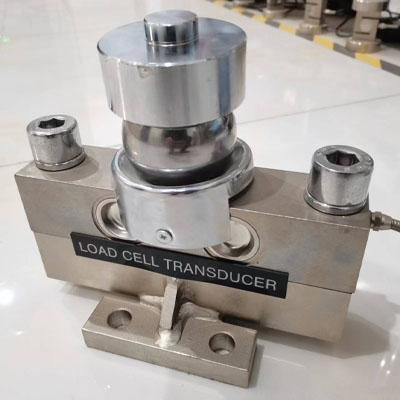
In the modern world, weight measurement is a fundamental part of numerous industries, from manufacturing and logistics to retail and scientific research. At the heart of these systems are load cells (also known as weighing sensors), which are responsible for converting the physical force or weight of an object into an electrical signal that can be read by a scale or other measurement system. Whether you are in need of a load cell for a production line, laboratory, or commercial setting, selecting the right type can have a significant impact on the performance and reliability of your weighing system.
In this article, we will dive into the technology behind load cells, explore the different types available, and provide a comprehensive guide on how to select the right load cell for your specific needs.
1. What is a Load Cell?
A load cell is a transducer that converts force into an electrical signal. When weight or force is applied to a load cell, it generates a small, measurable electrical output that corresponds to the amount of force exerted. This output is then used by a scale or measurement system to determine the weight or load.
The working principle behind load cells is typically based on the phenomenon of strain gauges, which are resistive elements that change their resistance when deformed. These strain gauges are bonded to a structural element, such as a metal beam or plate, which deforms under an applied load. The deformation causes a change in the resistance of the strain gauges, which is then measured by an electronic circuit and converted into an electrical signal.
2. Types of Load Cells
Load cells are designed to cater to a wide range of applications and come in various configurations. Each type has its own advantages and is suited to specific conditions. Below are some of the most common types of load cells:
2.1 Strain Gauge Load Cells
Strain gauge load cells are the most widely used type due to their high accuracy, durability, and versatility. These load cells rely on the principle of strain gauges attached to a metallic body. When force is applied, the material deforms, causing changes in the resistance of the strain gauges, which are then measured and translated into weight values.
Applications:
Industrial scales
Medical equipment
Automotive testing
Weighing systems in manufacturing plants
2.2 Hydraulic Load Cells
Hydraulic load cells use a liquid-filled sensor to measure force. When force is applied, the liquid inside the cell is compressed, and the pressure is measured to determine the load. Hydraulic load cells are typically used in environments where high capacities are required.
Applications:
Heavy machinery
Cranes and lifting equipment
Offshore applications
Large-scale industrial weighing
2.3 Pneumatic Load Cells
Pneumatic load cells operate similarly to hydraulic load cells, but instead of a liquid, they use compressed air. As the load is applied, the air pressure changes, and the sensor measures this variation to calculate the force. Pneumatic load cells are ideal for environments that require a non-electrical measuring system.
Applications:
Hazardous environments
High-vibration applications
Areas with fluctuating temperatures
2.4 Capacitive Load Cells
Capacitive load cells measure changes in capacitance when a force is applied. These load cells are typically more sensitive than strain gauge or hydraulic cells and can be used for precise measurements of small forces. They are less commonly used in industrial applications but are suitable for highly specialized scientific measurements.
Applications:
Laboratory research
Micro-force measurements
Precision testing
2.5 S-Type Load Cells
S-type load cells are shaped like the letter "S" and are typically used in tension and compression applications. These load cells are popular due to their flexibility and can be used for a wide range of applications, from weighing to force measurement.
Applications:
Tension and compression testing
Material testing machines
Dynamic load measurement
3. Factors to Consider When Selecting a Load Cell
Choosing the right load cell is crucial to ensuring the accuracy and longevity of your weighing system. Several factors should be considered when selecting a load cell for your application.
3.1 Load Cell Capacity
One of the most important considerations when selecting a load cell is its capacity, or the maximum load it can measure. Load cells come in various capacity ranges, from milligrams for delicate laboratory applications to several tons for industrial applications. Be sure to choose a load cell with a capacity that matches or slightly exceeds the maximum weight you will be measuring.
3.2 Accuracy and Precision
Different types of load cells offer varying levels of accuracy and precision. If your application requires high-precision measurements, you may need to choose a more sensitive load cell, such as a strain gauge or capacitive load cell. For general industrial applications, a lower-precision load cell may suffice.
3.3 Environmental Conditions
The environment in which the load cell will operate plays a significant role in selecting the right one. Factors such as temperature, humidity, vibration, and potential exposure to corrosive substances can all affect the performance of a load cell. For harsh environments, consider load cells with appropriate sealing and protective coatings.
3.4 Sensitivity and Response Time
In applications where rapid weight measurement is required, response time becomes critical. Load cells with faster response times can provide real-time feedback, which is important in high-speed production lines or laboratory environments where quick measurements are necessary.
3.5 Mounting and Installation
Consider how the load cell will be installed in your system. Load cells come in various shapes and sizes, and some may require specialized mounting setups. Ensure that the load cell you choose can be easily integrated into your existing equipment or machinery.
4. Applications of Load Cells
Load cells are used in a wide range of industries and applications. Some of the most common uses include:
4.1 Industrial Weighing Systems
In manufacturing, load cells are integral to industrial weighing systems, such as conveyor scales, batch weighing systems, and filling stations. Accurate weight measurement is essential to ensure product consistency, quality control, and proper inventory management.
4.2 Scientific and Laboratory Applications
In laboratory settings, load cells are used for precise force and weight measurement. Applications range from material testing, force measurement in experiments, and specialized research in fields like biomechanics and physics.
4.3 Transportation and Logistics
Load cells are used in weighbridges for measuring the weight of trucks, cargo containers, and other heavy shipments. They are also used in dynamic weighing systems to measure goods during transport.
4.4 Medical Equipment
In medical devices such as scales, weight measurement is critical for accurate dosing, patient monitoring, and device calibration. Load cells are commonly used in hospital scales, dialysis machines, and other medical weighing applications.
4.5 Aerospace and Automotive Testing
Load cells are used in both aerospace and automotive industries to test the performance of components under different weight and force conditions. This includes testing for stress, fatigue, and material performance.
5. The Future of Load Cell Technology
With advances in technology, load cells are becoming increasingly sophisticated. The integration of load cells with IoT (Internet of Things) devices, for instance, is paving the way for remote monitoring and predictive maintenance. In the future, we can expect load cells to become more precise, easier to integrate into smart systems, and able to withstand even harsher environmental conditions.
Conclusion
Load cells are essential components for accurate weight measurement in various industries. By understanding the different types of load cells, their applications, and factors to consider during selection, you can ensure that you choose the best load cell for your needs. Whether you're working in industrial manufacturing, logistics, or scientific research, investing in the right load cell will provide you with reliable, precise, and long-lasting measurement solutions.
For more information on selecting the right load cell or to inquire about our load cell products, feel free to contact us. Our team of experts will be happy to guide you through the selection process and provide the best solution for your specific requirements.






 售前客服
售前客服